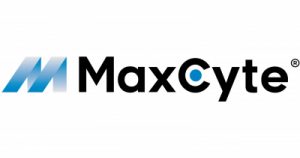
MyMD Takes on Inflammatory-Related Diseases with MYMD-1
While still in the early stages of development, Baltimore’s MyMD Pharmaceuticals lead therapeutic compound MYMD-1 appears to have the potential to be a pipeline in a pill that can play a role in multiple autoimmune and fibrotic diseases where inflammation plays a key role.
Speaking to BioBuzz in an exclusive interview, MyMD Chief Scientific Officer Adam Kaplin, a longtime Johns Hopkins University researcher, shared his insights into the possibilities of MYMD-1 as a potential treatment for ailments ranging from COVID-19 to rheumatoid arthritis to nonalcoholic steatohepatitis (NASH) to multiple sclerosis and even to neurodegenerative diseases like Alzheimer’s disease.
MYMD-1, a synthetic derivative of tobacco alkaloids, regulates the immuno-metabolic system through the modulation of numerous pro-inflammatory cytokines, including TNF-α, IL-6, and IL-17A. The drug candidate targets the root cause of inflammation, which is a core issue with these different disease types. Kaplin said MYMD-1 cuts off inflammation at the source and allows the body’s immune response to function properly.
A recent study conducted by Eurofins found MYMD-1 generated significant anti-proliferative effects by inhibiting cell growth and allowing the innate immune response to battle an infection. The Eurofins study compared MYMD-1 to commercially available TNFi biological drugs, which include AbbVie’s Humira, as well as Amgen’s Enbrel and Janssen’s Remicade.
Looking at the results of that study, Kaplin noted that the currently available TNF-a inhibitors generate billions of dollars in revenue and remain some of the most prescribed medications across the globe. AbbVie’s Humira is the most prescribed drug in the world. Last year, it generated about $20 billion in revenue for the Illinois-based company. Although they are effective medications aimed at a variety of diseases, such as rheumatoid arthritis, psoriatic arthritis, Crohn’s disease, and more, they have a number of adverse effects, including neurotoxicity.
Research has shown MYMD-1 is not detrimental to cell viability, which means that it has fewer toxicity concerns than current anti-inflammatory drugs that dominate the market, such as AbbVie’s Humira, which last year generated about $20 billion in annual revenue for that company. What’s perhaps more intriguing is that MYMD-1 is a small molecule that can cross the blood-brain barrier, which could line it up to eventually be assessed as a possible treatment for brain-related diseases, such as Alzheimer’s, for which inflammation plays a key role.
“We also found that MYMD-1’s selectivity allows it to only block overactive TNF-a in lymphocytes that participate in autoimmune diseases, leaving TNF-a synthesized in macrophages to be produced to help coordinate the initial response to acute infections. This should remove the increased risk of infection, associated with all TNFi biological drugs used today,” Kaplin said.
Kaplin quipped that he sometimes gets a bit worried when he expresses excitement about the potential of MYMD-1. So far, the data surrounding the promise of the small molecule has been so promising, he said it seems “too good to be true.”
“It’s almost an embarrassment of riches,” Kaplin said. But, it’s those same promises that enticed Kaplin to leave academia for MYMD.
While there are multiple disease indications MYMD-1, a selective inhibitor of tumor necrosis factor-alpha (TNF-a), a driver of chronic inflammation, could be aimed at, MyMD is first assessing the drug candidate against inflammation-related depression associated with COVID-19 infection and multiple sclerosis. Working in conjunction with Johns Hopkins, the company is examining how MYMD-1 works in inflammatory depression-related symptoms that are related to COVID recovery, something that hardly any clinical research has been conducted, Kaplin said. A Phase II study is expected to begin later this year. The study will examine pro-inflammatory cytokines associated with the virus-related “cytokine storm.” Kaplin said he hopes the COVID study will begin in October, which means the company could see data by the end of the year or in early January.
A clinical study in multiple sclerosis is also expected to soon begin. Additionally, MyMD will assess MYMD-1 in chronic inflammation in frailty and sarcopenia. The experimental drug has been shown to slow aging and allow for the maintenance of muscle strength in mice models.
In addition to MYMD-1, MyMD is also developing Supera-CBD, a novel synthetic derivative of cannabidiol. Supera-CBD targets numerous key receptors including CB2 and opioid receptors and inhibits monoamine oxidase. Kaplin said Supera-CBD is potentially capable of pain reduction in different diseases and has applications for anxiety and post-traumatic stress disorder. MyMD anticipates new data from studies assessing Supera-CBD that will determine how it differs from existing CBD products.
“We’re really excited about the potential of Supera-CBD,” Kaplin said.







